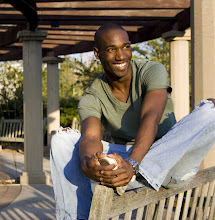
The "coming out" experience for an LGBT identified person can be a vital one. It is a process of admitting to oneself and others that your are indeed a lesbian, gay, bisexual or transgender, but more than that, it is taking ownership of your own sexuality and learning to be comfortable with it. One of the most important aspects of a successful coming out experience is the validation one receives from their heterosexual friends and family. Since it is often the fear of social rejection that is so crippling, it is paramount that those to whom one comes out are sensitive to this fact and are careful to respond appropriately. As a gay man who has come out to many people, I thought it might be a good idea to share a few "Do"s and "Don't"s for heterosexuals who are dealing or will deal with this issue.
- WE DON'T WANT TO HAVE SEX WITH YOU. Just because you belong to the gender to which we are attracted, doesn't mean we want to have sex with you. Coming out to you is NOT synonymous with coming on to you. Just like heterosexuals don't want to screw everything they see, neither do we (although there are those in either community who are a bit less choosy). It's really offensive to hear from your friend, "You aren't going to try to touch me or anything, right?" Do you really think that after I've watched you fart, burp, scratch your beer gut and talking about "plowing bitches" for 3 years, I'm all of a sudden going want to have sex with you? DISAGREE. Now, it's possible that your friend DOES want to have sex with you, in which case, stay calm and tread lightly.
- DON'T FREAK OUT. The person coming out to you more than likely had to work up a hell of a lot of courage to tell you and reacting poorly to that will only make it exponentially more difficult to come out to the next person. The best thing to do when at a loss for what to do or say is to remain calm, shut the hell up and nod in agreement. You are better off not saying anything than saying something that could be possibly be offensive or insensitive, although, if possible, it is a good idea to respond with some sort of positive statement of affirmation.
- Two people being gay is not a good enough reason to set them up on a date. When you think to set up two straight people, you think of qualities and interests that they share, not that they are just a single guy and girl. The same rules apply to gay people, we won't, "just love this guy/girl" because they are gay. Next time you think about setting your gay friend up with someone completely arbitrary, STOP IT!
- It's okay to not know the answer. If someone comes out to you and expresses uncertainty about where to find resources, getting tested, etc., and you have no idea where to start, the best thing to do is offer your support in finding those things. Don't start pulling answers out of your ass. Just knowing that there is someone there to help navigate this "uncharted territory" is often more than enough.
- Don't treat someones sexuality as a novelty. It's very frustrating when you come out to someone and they respond with, "OMG, now you can totally come shopping with me and help me pick out outfits!" We are NOT your personal shoppers, some of us don't even LIKE shopping. It's also usually a bad call to introduce someone as your "gay" friend. We generally don't like feeling like we are filling a quota of some sort or that the friendship is based upon our sexuality. It's important not to treat someone as your "gay" friend but rather your friend that happens to be gay. Gay people aren't commodities, so don't treat them as such.
- Don't feel pressured to warp speed through dealing with someone coming out to you. The person who came out likely had several months or years to come to terms with their sexuality, so you should be allowed the same amount of time to adjust as well.
- Be proud of yourself. You are doing something that many people are too afraid to. The fear of being labeled as gay, and therefore social rejection, is crippling to some, preventing them from acting as an ally (a straight person who supports the LGBT community) even if they have the desire. Validation from allies is one of the most important things to an LGBT person, so don't ever think that the role of an ally isn't a significant one.



I really liked this, Justin; thanks for sharing!
ReplyDelete